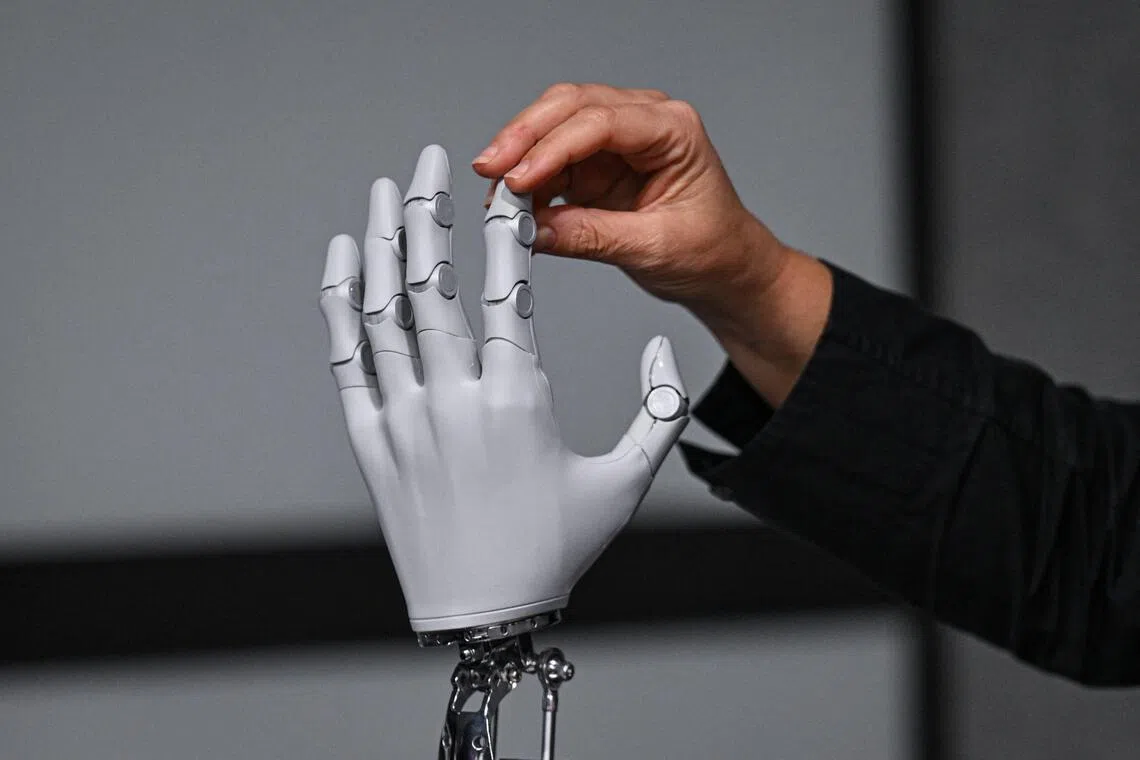China to trial humanoid robots guiding crowds at border crossings
Sign up now: Get insights on Asia's fast-moving developments

UBTech Robotics said it struck a deal with a testing centre near China’s border with Vietnam.
PHOTO: AFP
BEIJING – Humanoid robots could guide travellers and manage crowds at some Chinese border crossings after Shenzhen-based UBTech Robotics said it had won a multimillion-dollar contract to supply its latest models for a trial project.
The company said on Nov 25 it had struck the US$37 million (S$48 million) deal with a humanoid robotics testing centre based near China’s border with Vietnam.
The project will use mainly the latest version of UBTech’s “Walker” robots to test practical humanoid applications such as helping border management, handling logistics or patrolling factories.
UBTech said it would start delivering the robots, which can swop their own batteries, to the centre in December.
It did not say whether they would be powered by artificial intelligence or operated remotely.
China’s government has encouraged domestic firms to develop humanoids in the hope of leading the global robotics industry.
An April report published by Leaderobot, a specialist consulting firm, predicted that China’s humanoid robotics industry would reach 82 billion yuan (S$15 billion) in 2025 – accounting for half of global sales.
In November, a robot made by Shanghai’s AgiBot set a Guinness World Record for the longest reported distance ever walked by a humanoid machine, having completed a three-day, 100km trek.
Beijing hosted the world’s first-ever humanoid robot games in August, where more than 500 “athletes” vied in disciplines ranging from basketball to competitive cleaning.
Large-scale real-life use cases remain elusive though.
Goldman Sachs warned recently that the sector risks overcapacity as production scales up rapidly without actual orders.
UBTech said on Nov 25 its Walker series has generated 1.1 billion yuan in sales so far in 2025.
“The orders we have received far exceed the announced number,” UBTech executive Tan Min told local media in November, addressing the overcapacity concerns. AFP


